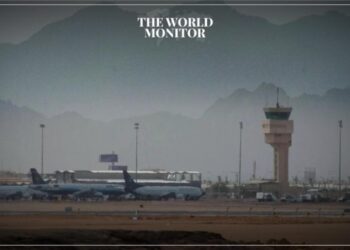Months before the deadly attack on the “Krokus City Hall” complex on the outskirts of Moscow, claimed by ISIS, several Western intelligence agencies warned of suspicious activity by the terrorist organization.
According to information, ISIS launched a major recruitment campaign last year targeting extremists from Tajikistan and other Central Asian countries. The campaign specifically targeted members with experience in extremist groups involved in terrorist attacks, as reported by The Guardian.
Intelligence shared in a recent UN report on ISIS activities, released in January, revealed that over the past 12 months, the local branch of the organization in Afghanistan, known as ISIS Khorasan, successfully recruited prominent fighters from the “Ansar Allah” group, a veteran extremist group in Tajikistan, as well as others in Central Asia.
ISIS Khorasan also established a channel on Telegram and other social media platforms to disseminate propaganda targeting Tajiks and others in the region.
Despite a decrease in ISIS Khorasan attacks, the UN report presented to the Security Council at the beginning of this year (2024) warned that the organization remains the biggest threat in Afghanistan, with the capability to extend its threats beyond the region. The report noted ISIS’s “broad recruitment strategy,” focusing on attracting members from the Taliban and disillusioned foreign fighters.
US and European intelligence agencies have observed a significant increase in terrorist plots linked to ISIS in Khorasan, believed by some analysts to be the strongest ISIS branch outside of Africa, involving Tajik elements in schemes and attacks in Germany, Turkey, and even Iran.
The reminder of this report comes after four men from Tajikistan were placed in pre-trial detention for two months by a Moscow court on suspicion of carrying out the attack on the “Krokus City Hall” complex, which left over 137 dead. The four individuals face terrorism charges and potential life imprisonment.
Russia has witnessed ISIS-perpetrated terrorist attacks in recent years, including the 2022 terrorist attack on its embassy in Kabul by ISIS Khorasan, which resulted in the deaths of Russian diplomats.
Additionally, Russia’s ambassador to Ankara, Andrei Karlov, was shot dead on December 19, 2016, by a gunman who cited revenge for Aleppo as the motive for the attack.
ISIS has a strong motive to target Russia, which intervened in the Syrian Civil War in 2015, according to security analysts. The terrorist organization’s branch in Khorasan has intensified its focus on Russia over the past two years, repeatedly criticizing Russian President Vladimir Putin in its propaganda.






